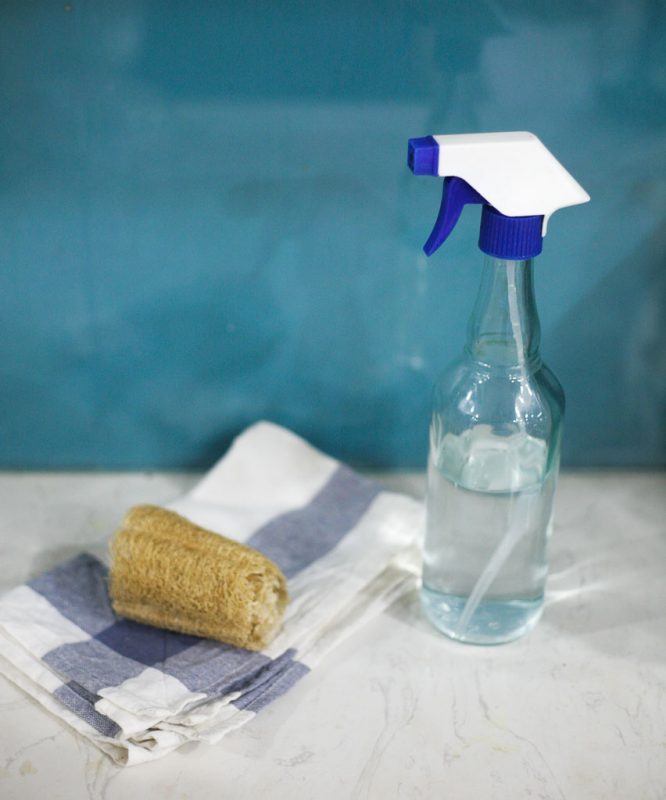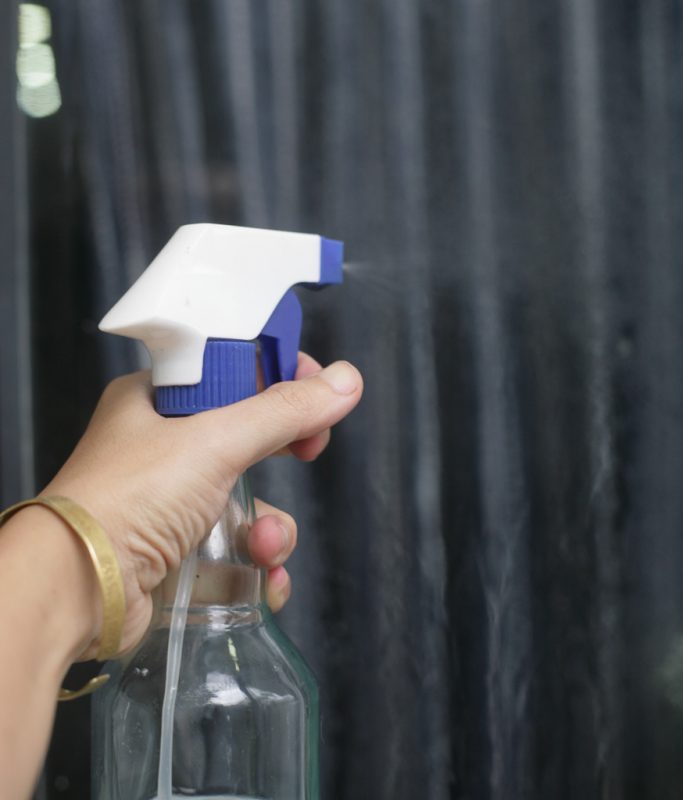It’s Tet holiday around the corner and as a tradition, we would start some thorough house cleaning very soon. I still remember it as the worst nightmare of my childhood. I still think it is now. But I do like cleaning, once in a while, and I do it really well, with the highest level of OCD anyone can imagine. Imagine Monica Geller! or Marie Kondo. or your mom! Once I do, I usually cannot do without the help of good cleaning vinegar.

Cleaning vinegar (or white vinegar) is certainly a staple for home cleaning simply because it is effective. Not to mention it is cheap, natural, non-toxic, environment-friendly and best for households with small children.
How does it work?
The ordinary vinegar for food use usually contains 5% acetic acid, cleaning vinegar is usually 6 – 10 per cent ( No Waste To Go’s cleaning vinegar is 6% solution, and you can ask for higher concentration if needed). Vinegar is an acid, therefore it can cut through grease, dirt and can kill bacteria. It is best for general household cleaning on surfaces that can tolerate a strong, acidic product. Vinegar can remove hard water deposits from glassware, rust stains from sinks, and tarnish from brass and copper.
How to use it?
Despite being a big fan of cleaning vinegar, I have to admit that it is not the magic multipurpose solution like many sites have claimed. You have to use it at full or nearly full strength for it to be effective. The recommended water mixing ratio is 1:1 (i.e mix 1 part of cleaning vinegar with 1 part of water). This will give you a solution of around 2.5-3% acetic acid, which is strong enough for cleaning. Use this solution as spray cleanser on glass, windows, walls, cupboards, floors, sinks, stovetops and coffee makers,…

“Set-time” is another important factor. Set-time is the time a cleaner must rest on a surface in order to work effectively. The set time for vinegar can be up to 30 minutes and varies depending on the stains or grease you are cleaning. So, be watchful and patient.
When not to Use it?
There are downsides to vinegar. Don’t use it on granite, marble, and soapstone surfaces, the stones might lose their shine when mixed with an acid like vinegar.
Don’t use vinegar to clean kitchen knives, aluminium cookware either as acids can break down the metals. Just soap and water would do.
NEVER combine vinegar with bleach or hydrogen peroxide. Toxic vapors can result.
NEVER combine vinegar with baking soda. Because baking soda is a base. ACID + BASE = SALT + WATER. You just cancel out the benefits of both by mixing them. So Don’t! Even if you might see somebody suggesting so the 1001st time. Just Don’t.
So, are you ready for the spring cleaning yet? 😉


 VI
VI